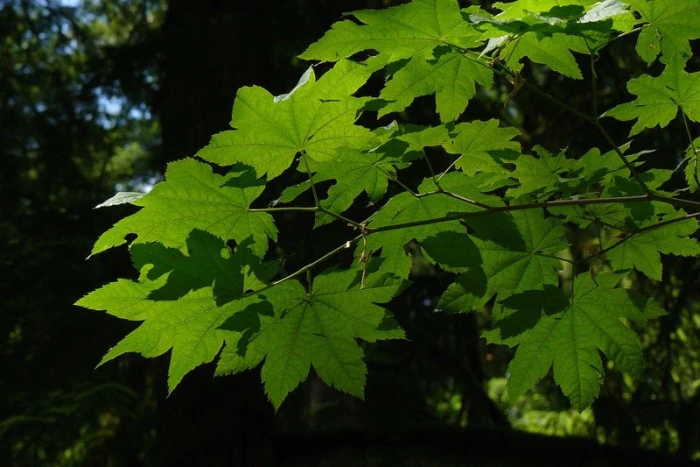Vine Maple
/
(Acer circinatum)
Vine Maple (Acer circinatum)
/

Jean Pawek
CC BY 3.0
Image By:
Jean Pawek
Recorded By:
Copyright:
CC BY 3.0
Copyright Notice:
Photo by: Jean Pawek | License Type: CC BY 3.0 | License URL: http://creativecommons.org/licenses/by/3.0/ | Attribution: 2014 Jean Pawek | Publisher: Calphotos |
















































































Summary
Acer circinatum, commonly known as Vine Maple, is a deciduous shrub or small tree native to understory and forest margins in the Pacific Northwest, including British Columbia, Washington, Oregon, and Northern California. It typically grows 5 to 8 meters (16 to 26 feet) tall, with slender, hairless shoots and a trunk rarely exceeding 25 centimeters (10 inches) in diameter. Vine Maple is unique among maples for its ability to form natural arches by bending over, rooting at the tips, and layering. This adaptation allows it to thrive in the dappled light of its native woodland habitats.
Vine Maple is celebrated for its graceful form and the stunning fall color it brings to gardens, ranging from bright yellow to vibrant red. It is versatile in landscape use, suitable for urban planting, as an understory plant, or for naturalizing in woodland gardens. It is relatively easy to maintain, tolerating a range of soil drainage conditions. While it prefers part shade, it can adapt to full shade, especially in hotter climates. Vine Maple does not typically suffer from serious disease or pest problems, but it can be sensitive to drought and extreme heat.CC BY-SA 4.0
Vine Maple is celebrated for its graceful form and the stunning fall color it brings to gardens, ranging from bright yellow to vibrant red. It is versatile in landscape use, suitable for urban planting, as an understory plant, or for naturalizing in woodland gardens. It is relatively easy to maintain, tolerating a range of soil drainage conditions. While it prefers part shade, it can adapt to full shade, especially in hotter climates. Vine Maple does not typically suffer from serious disease or pest problems, but it can be sensitive to drought and extreme heat.CC BY-SA 4.0
Plant Description
- Plant Type: Tree, Shrub
- Height: 12-25 feet
- Width: 6-12 feet
- Growth Rate: Moderate
- Flower Color: N/A
- Flowering Season: Spring
- Leaf Retention: Deciduous
Growth Requirements
- Sun: Part Shade, Full Shade
- Drainage: Fast, Medium, Slow
Common Uses
Bee Garden, Bird Garden, Butterfly Garden, Drought Tolerant, Edible*Disclaimer: Easyscape's listed plant edibility is for informational use. Always verify the safety and proper identification of any plant before consumption., Erosion Control, Low Maintenance, Street Planting
Natural Habitat
Understory and forest margins in the Pacific Northwest, with an ability to adapt to full shade and a range of soil drainage conditions
Other Names
Common Names: Vin-Løn, Érable Circiné, Vinlönn
Scientific Names: Acer circinatum, Acer circinatum var. fulvum, Acer macounii, Acer circinatum f. fulvum, Acer modocense, Acer virgatum
GBIF Accepted Name: Acer circinatum Pursh
